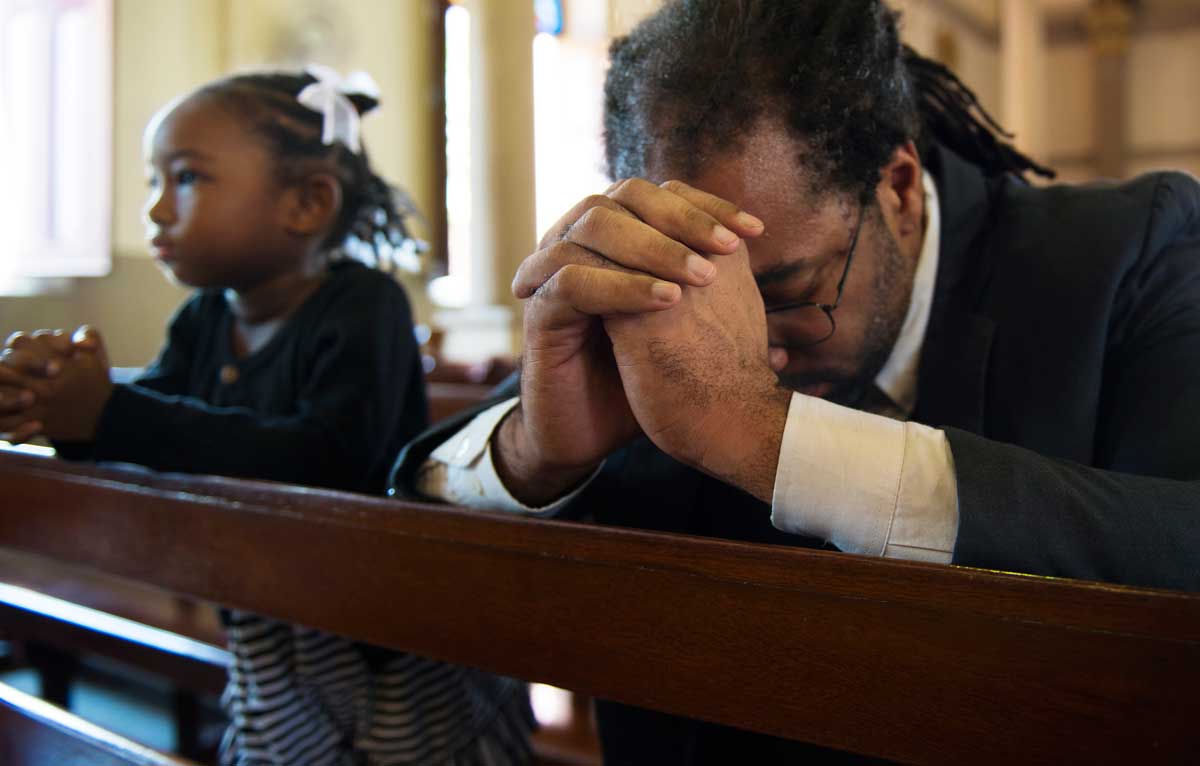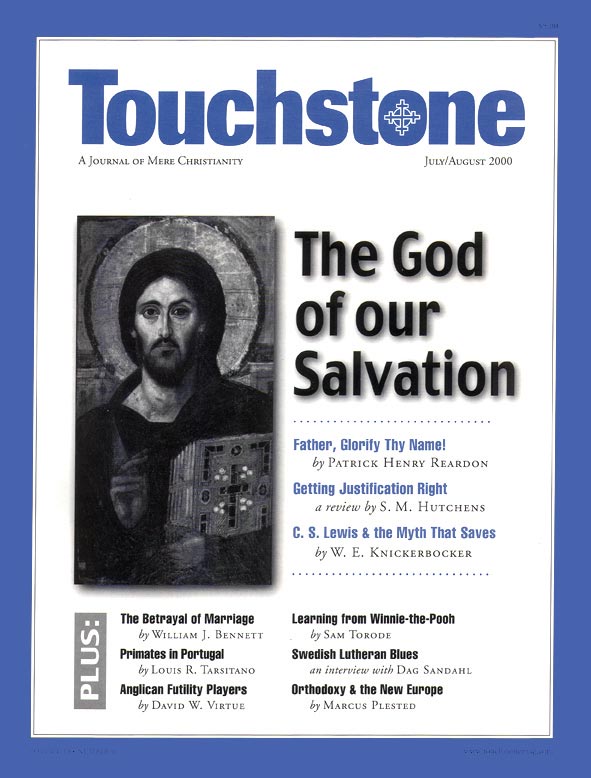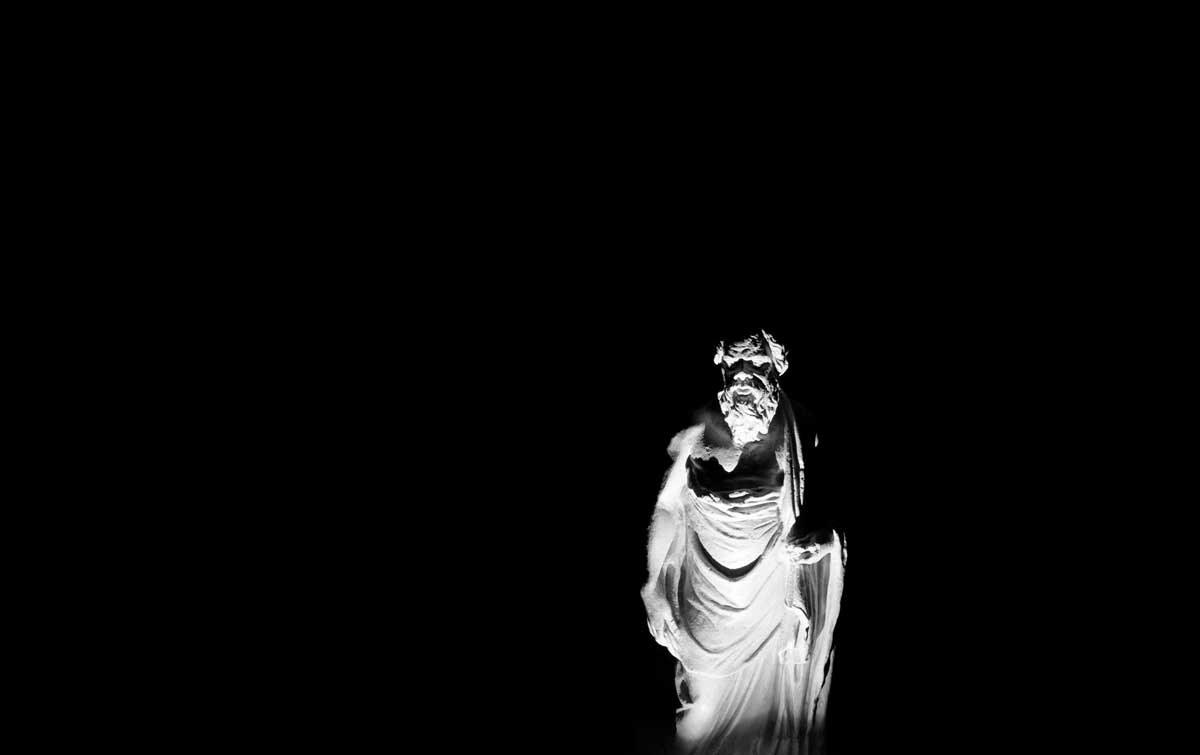Father, Glorify Thy Name!
The Patriarchal Shape of Trinitarian Theology
by Patrick Henry Reardon
There persists among Christians today a disposition to talk of God apart from Christ. I do not mean that Christians, at least serious Christians, explicitly theorize that the true God can be known without Christ. I am referring, rather, to a tendency to describe even the true God, the God of the Christian revelation, in very general, abstract terms not rooted in the living experience of God in Christ. It seems that some Christians, having found God in Christ, feel free to separate him from this unique font of revelation and to discuss and describe him in terms that are hardly related at all to the vision of his glory manifest in the face of Christ. They take their ideas about Christ and God and then run off to elaborate them, as it were, on their own.
A chief and disturbing instance of this disposition, I submit, is what I venture to call today’s via negativa vulgaris, or popular apophaticism. The Orthodox Church has always said, of course, that we cannot adequately describe God as he is in himself. Thus, in Orthodox theology, the knowledge of God always involves a certain “unknowing.” A good number of non-Orthodox Christians, however, and perhaps even a few Orthodox, seem seriously to have misunderstood what the Orthodox Church means in such an assertion. Speaking of God as mysterious and incomprehensible has become very much the style in certain quarters. In my opinion it is most often just another symptom of modern murky thinking, however, and I plan to argue here that it has nothing to do with what the Church has traditionally called apophatic theology.
The formulation of this popular apophaticism tends to run along the following lines: “God is very, very obscure. God transcends all of our conceptual images of him and all the language in which we speak of him. In thinking about and discussing God at all, we constantly run the danger of idolatry. All references to God must be as indefinite as possible, because every description of God, in the measure that it is dogmatically clung to and insisted upon, may become a graven or molten image.”
An attempt is sometimes made at this point to justify this apophatic vigilance against doctrinal formulation by some vague and very caliginous reference to those Fathers of the Church especially known for their emphasis on the via negativa (that is, saying what God is not rather than saying what he is). The latter appeal is apparently supposed to quiet any scruple that Eastern Orthodoxy may feel about the whole process.
Our popular apophaticism then goes on to contend that the contemporary theological task is twofold. First, we are informed, one must maintain a strict caution. Mysterious means blurry, so when one speaks of God, it is imperative not to say anything very clear or precise. One must be constantly aware of the peril of identifying him with any concept descriptive of him, for such descriptions are only symbolic and metaphorical. Inasmuch as the new via negativa ultimately negates the whole theological pursuit anyway, theology should glory in being hazy, haphazard, and provisional.1
Thus, according to this popular apophaticism, when the Creed speaks of God as Father, theology must recognize that we are dealing only with a metaphor. All positive statements about God must then be negated. A proper respect for this consideration should prompt us to say, then, that God is also not Father, for the image of fatherhood must be apophatically transcended. Similarly, if God is Lord, the same reasoning insists, he also surpasses the category of lordship, and that image, too, only testifies to its inadequacy.
Second, according to the via negativa vulgaris, precisely because all imagery descriptive of God is merely metaphorical and provisional, a proper evangelical solicitude will prompt theology to balance and condition such descriptions in various ways in order to make God more attractive. For example, recognizing that the proclamation of the gospel may be hindered by its inclusion of images perceived as negative or oppressive, it says that theology should endeavor, at the least, to neutralize these images, or perhaps even to expunge them altogether. In this way, theology can be made more relevant to the contemporary concerns of feminism, political liberation, and other just causes. Sometimes this process of re-interpretation is described as a “development of doctrine,” and rather shaky allusions are made to the thought of Cardinal Newman. This last move is apparently supposed to quiet any misgivings that Roman Catholicism may feel about the whole process.
We may illustrate this procedure by the same examples used above. Because the modern apophaticists associate the terms Father and Lord, by which we have traditionally spoken of God, with the oppressive patriarchies of the past, something must be done about them. And since modern apophaticism has already pronounced them to be inadequate and possibly misleading anyway, there should be no problem about dealing with them decisively. If God is not really Father, then Father is no more appropriate a name than Mother. So why not employ both names, or perhaps neither? As for Lord, the word is nearly Nietzschean; it so smacks of oppression that maybe it should be dropped altogether, or at least neutralized with a less masculine equivalent like “sovereign.”
The impact of this development is already being experienced by some Christians in their congregational worship. Whether in the new Methodist service book in use for the past several years, or the so-called trial liturgies inflicted from time to time on those long-suffering Episcopalians, or the various new hymnals adopted by several of the major and mainline churches, traditional references to the Persons of the Holy Trinity are rapidly disappearing. They are being replaced by such expressions as “Grandfather, Great Spirit,” “God, our grove,” “Jesus our Mother,” “our father and mother God,” and (everybody’s all-time favorite) “Bakerwoman.”2 Moreover, the same license with regard to altering language about God also characterizes several so-called translations of the Psalms intended for congregational use.3
Patrick Henry Reardon is pastor emeritus of All Saints Antiochian Orthodox Church in Chicago, Illinois, and the author of numerous books, including, most recently, Out of Step with God: Orthodox Christian Reflections on the Book of Numbers (Ancient Faith Publishing, 2019).
subscription options
Order
Print/Online Subscription

Get six issues (one year) of Touchstone PLUS full online access including pdf downloads for only $39.95. That's only $3.34 per month!
Order
Online Only
Subscription

Get a one-year full-access subscription to the Touchstone online archives for only $19.95. That's only $1.66 per month!
bulk subscriptions
Order Touchstone subscriptions in bulk and save $10 per sub! Each subscription includes 6 issues of Touchstone plus full online access to touchstonemag.com—including archives, videos, and pdf downloads of recent issues for only $29.95 each! Great for churches or study groups.
Transactions will be processed on a secure server.
more from the online archives

14.1—January/February 2001
The Christian Heart of Fatherhood
The Place of Marriage, Authority & Service in the Recovery of Fatherhood by John M. Haas
calling all readers
Please Donate
"There are magazines worth reading but few worth saving . . . Touchstone is just such a magazine."
—Alice von Hildebrand
"Here we do not concede one square millimeter of territory to falsehood, folly, contemporary sentimentality, or fashion. We speak the truth, and let God be our judge. . . . Touchstone is the one committedly Christian conservative journal."
—Anthony Esolen, Touchstone senior editor








